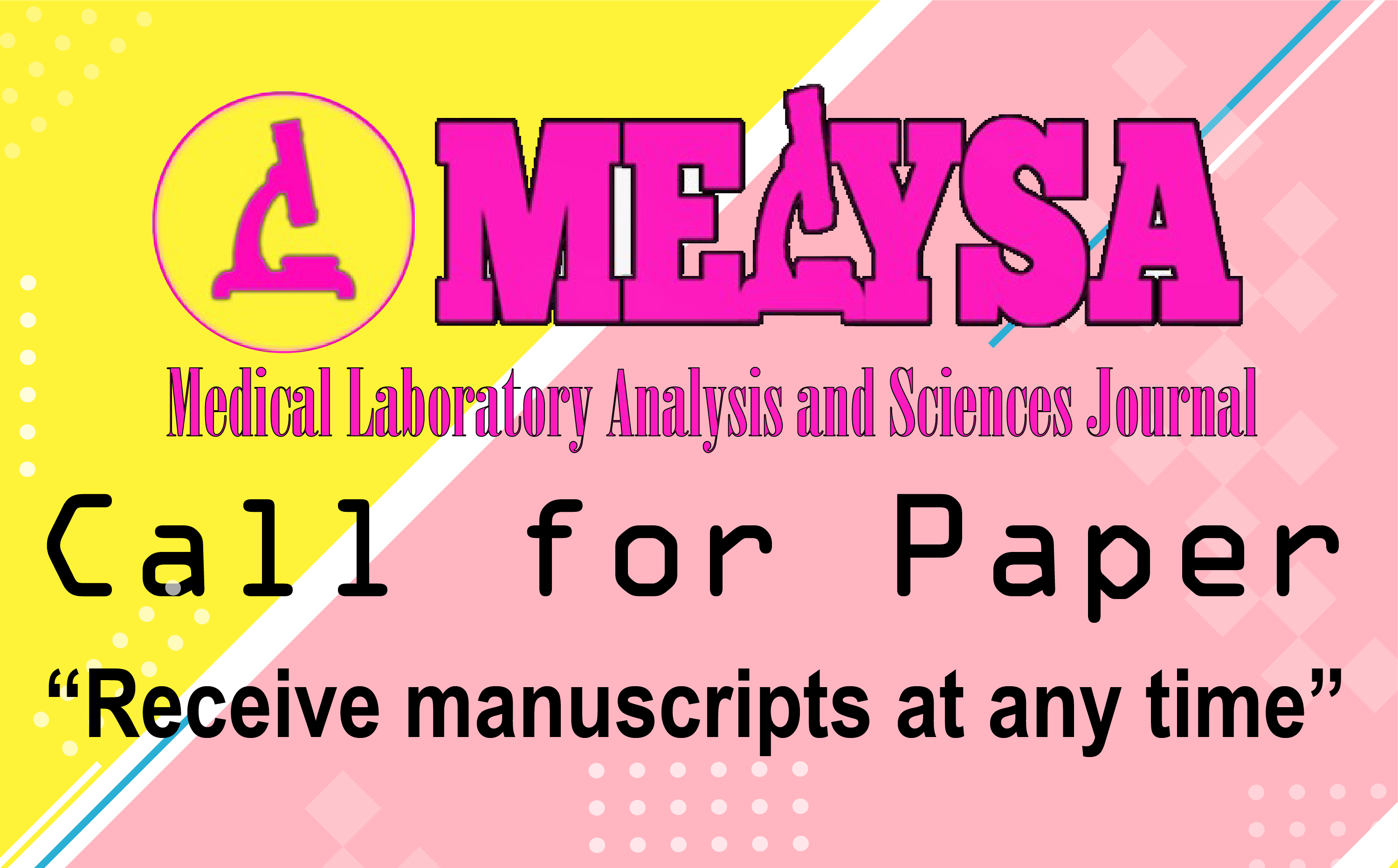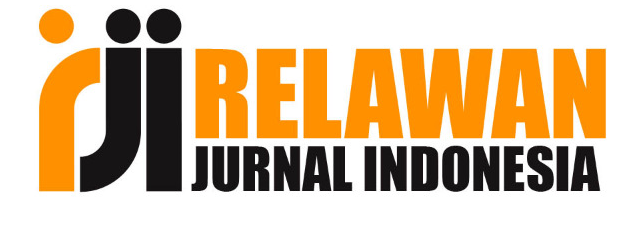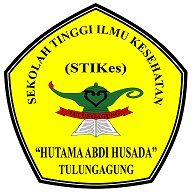Analysis of bulk oil in Tulungagung district on physical and chemical properties
DOI:
https://doi.org/10.35584/melysa.v1i1.16Keywords:
Bulk Oils, Physical Parameters, Chemical ParametersAbstract
This study aims to analyze the quality of Bulk frying oil in the Tulungagung district. Four samples were a test using physical parameters, organoleptic, density, and viscosity, while the chemical parameters were a test or the value of free fatty acids, acid numbers, and peroxide numbers. Comparison of the results of the analysis with SNI (Indonesian Standard Oil Quality), the four samples have poor chemical properties quality, it could be known by the acid number of samples 0.56, 0.78, 0.78, 1.65 (%) and Free fatty acids number 2.86, 9.98, 4.23, 6.7 (%) are higher than SNI 0.3 and 0.6 (%), even sample D has a poor peroxide number. So that overall, it is shown that the quality of Bulk oil from the samples used is not good enough.
Downloads
References
Winarno, F.G. (1997). Kimia Pangan dan Gizi. PT. Gramedia Pustaka Utama. Jakarta.
Silalahi, R.L.R., Sari, D.P., Dewi, I.A. (2017). Testing of Free Fatty Acid (FFA) and Colour for Controlling the Quality of Cooking Oil Produced by PT. XYZ, Jurnal Teknologi dan Manajemen Agroindustri, 6(1), 41-50. DOI: https://doi.org/10.21776/ub.industria.2017.006.01.6
Imoisi, O.B., Ilori G.E., Agho, I., & Ekhator JO. (2015). Palm oil, its nutritional and health implication (Review). J. Appl. Sci. Environ. Manage, 19(1), 127-133. DOI: http://dx.doi.org/10.4314/jasem.v19i1.15
Putri,R., Budiyanto, B., & Syafnil, S. (2016). Evaluate the Quality Changes of Frying oil during continuous frying of lemuru fish (Sardinella lemuru). Jurnal Agroindustri, 6(1), 1-7. DOI: http://doi.org/10.31186/j.agroind.6.1.1-7
Ilmi.I.M.B, Khomsan A, & Marliyati.S.A. (2015). Kualitas Minyak Goreng dan Produk Gorengan Selama Penggorengan di Rumah Tangga Indonesia. Jurnal Aplikasi Teknologi Pangan. Jurnal Aplikasi Teknologi Pangan, 4(2), 61-65. DOI: http://doi.org/10.17728/jatp.2015.12
Pangestuti, D.R, & Rohmawati, S. (2018). Peroxide Content in Cooking Oil Used By Fritter Traders in Tembalang Subdistrict Semarang City. Amerta Nutrition, Airlangga University, 2(2), 205-217. DOI: http://doi.org/10.2473/amnt.v2i2.2018.205-211
Nainggolan, B., Susanti, N., & Juniar, A. (2016). Uji Kelayakan Minyak Goreng Curah dan Kemasan yang Digunakan Menggoreng Secara Berulang. Jurnal Pendidikan Kimia, 8(1), 45-57. DOI: http://doi.org/10.24114/JPKIM.V8I1.4424
Suandi, D.A.P., Suaniti, N., & Putra, A. (2017). Analisis Bilangan Peroksida Minyak Sawit Hasil Gorengan Tempe Pada Berbagai Waktu Pemanasan dengan Titrasi Iodometri.Jurnal Kimia (Journal Of Chemistry), 11(1), 69-74. https://ojs.unud.ac.id/index.php/jchem/article/view/27548
Visioli, F., Franco, M., Toledo, E., Luchsinger, J., Willett, W.C., Hu, F.B., Martinez-Gonzalez, M.A. (2018). Olive oil and Prevention of chronic diseases: Summary of an International Conference. Nutrition, Metabolism and Cardiovascular Diseases, 28 (7), 649-656. DOI: https://doi.org/10.1016/j.numecd.2018.04.004
Taufik, M., & Seftiono, H. (2018). Karakteristik Fisik dan Kimia Minyak Goreng Sawit Hasil Proses Penggorengan dengan Metode Deep-Fat Frying. Jurnal Teknologi Universitas Muhammadiyah Jakarta, 10(2), 123-130. DOI: https://dx.doi.org/10.24853/jurtek.10.2.123-130
Sopianti,D.S., Herlina, Saputra, H.T. (2017). Penetapan Kadar Asam Lemak Bebas Pada Minyak Goreng. Kementrian RISTEK Journal Katalisator Kopertis Wilayah X, 2 (2), 100-105. DOI: http://doi.org/10.22216/jk.v2i2.2408
Badan Standard Nasional Indonesia. SNI 7709. (2012). Syarat Mutu Minyak Goreng Kelapa Sawit. Dewan Standar Nasional: Jakarta
Kenechi, N. O., Felix, A., Linus, C., & Kayode, A. (2017). Analysis on the Physicochemical Properties of Palm Oil Within Isialangwa Local Government Area of Abia State, Nigeria. International Journal of Bioorganic Chemistry, 2 (4), 159-162. DOI: http://doi.org/10.11648/j.ijbc.20170204.11
Siddique, B.M., Muhamad, I.I., Ahmad, A., Ayob, A., Ibrahim, M.A., Omar, M.AK. (2015). Effect of frying on the rheological and chemical properties of palm oil and its blends. J Food Sci Technol, 52(2), 1444-1542. DOI: http://doi.org/10.1007/s13197-013-1124-6
Tarmizi, A.H.A., Ismail, R., & Kuntom, A. (2016). Effect of Frying on the Palm Oil Quality Attributes – A Review. Journal of Oil Palm Research, 28(2), 143-153. DOI: http://doi/org/10.21894/jopr.2016.2802.01.
Nurminha, N. (2017). Pengaruh Penambahan Antioksidan Kunyit (Curcuma longa) Terhadap Bilangan Peroksida Pada Minyak Goreng Curah. Jurnal Analis Kesehatan Politeknik Kesehatan Tanjungkarang Indonesia, 4(1), 370-375. DOI: http://dx.doi.org/10.26630/jak.v4i1.422
Naseri.S, Mahmoudian.M.H, Yari.A.R, Molaghen.S., & Mahmoodian.Z. (2018). Evaluation of Peroxide Value and Acid Number of Edible Oils Consumed in the Sandwich and Fast Food Shops of Qom, Iran in 2016. Archives of Hygiene Sciences,7(2), 91-97. DOI: http://doi.org/10.29252/ArchHygSci.7.2.91
Maochong, L. (2014). Research on Edible Oil Quality and Safety System. International Conference on Mechatronics, Control and Electronic Engineering. 1(1), 732-736. DOI: https://doi.org/10.2991/mce-14.2014.158DO
Parkinson, L., & Cicerale, S. (2016). The Health Benefiting Mechanisms of Virgin Olive Oil Phenolic Compounds. Molecules, 21(12),1-12. DOI: http://dx.doi.org/10.3390/molecules21121734
Babatunde, O.A., & Bello, G.S. (2016). Comparative Assessment of Some Physicochemical Properties of Groundnut and Palm Oils Sold Within Kaduna Metropolis, Nigeria. IOSR Journal of Applied Chemistry (IOSR-JAC), 9(11), 26-30. DOI: http://doi.org/10.9790/5736-0911022630
Ebere, E. C., Amarachukwu, I. E., Wirnkor, V. A., & Ngozi, E. P. (2017). Physicochemical Parameter of Palm Oil and Soil from Ihube Community, Okigwe, Imo State Nigeria. International Letters of Natural Sciences, 62(1), 35-43. DOI: http://doi.org/10.18052/www.scipress.com/ILNS.62.35
Yusibani, E., Hazmi, N.A., & Yufita, E. (2017). Pengukuran Viskositas Beberapa Produk Minyak Goreng Kelapa Sawit Setelah Pemanasan. Jurnal Teknologi dan Industri Pertanian Indonesia, 9(1), 28-32. DOI: https://doi.org/10.17969/jtipi.v9i1.6108
Downloads
Published
Issue
Section
License
Authors retain copyright and grant the journal right of first publication with the work simultaneously licensed under a Creative Commons Attribution-ShareAlike 4.0 International License that allows others to share the work with an acknowledgment of the work's authorship and initial publication in this journal.















